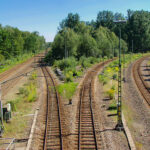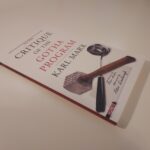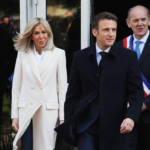Summary: The rise of racist, climate-crisis-denying politician Geert Wilders, and the crisis of capitalism in the Netherlands. — Editors.
On November 22, 2023, elections for the Lower Chamber of the Dutch parliament resulted in a strong swing to the right, marked by the right-wing populist and racist Geert Wilders and his party the PVV (Partij voor de Vrijheid– Party for Liberty) winning 37 of the available 150 seats in the Lower Chamber – an increase of 20 from the elections of 2021.
The rise of right-wing populism and neo-fascist tendencies is a phenomenon that is not specific to the Netherlands, as has been seen recently in the USA, France, Germany, Italy, Hungary, and Argentina. Analysis of this phenomenon, which is a manifestation of the crisis-ridden nature of capitalism, requires a turn to some methodological handles.
Some methodological notions for the approach of right-wing populism
One of these handles is to be found in the statement of Raya Dunayevskaya (Raya Dunayevskaya Archives, p. 3582) which I used as an epigraph in my article “In the Ocean of Crisis: Right-wing Populism and Awakening Fascism vs. Marxist-Humanism and Freedom”, in which she says, regarding right-wing populism and awakening fascism in capitalist society, and its analysis by Marxist-Humanism:
“The question is what to do about it, and that ‘doing’ is not limited to actions but extends to thought, to a strategy flowing from a philosophy which recognizes the social system which has brought these intolerable conditions about.”
This points to the need to think non-abstractly and to the substance of education when we approach the phenomenon of right-wing populism. This means that capitalist society in the first place revolves around consciousness and above all class consciousness. Most clearly as relating to right-wing populism, this comes to the fore in Dunayevskaya’s statement in 1964, “Theory and Practice at the Turning Point” (Raya Dunayevskaya Archives, p. 3596) where she writes about the racist and right-wing populist Barry Goldwater, and develops a notion which for the analyzing of right-wing populism nowadays is as true as in 1964 and so is valid too for considering the phenomenon of Wilders and his PVV:
“Without a dialectical approach there is the danger that, no matter how active anti-Goldwaterites we are, we could be lulled to sleep either by thinking that the ‘no vote’ against Goldwater will destroy the phenomenon of Goldwaterism, or by an ‘it-can’t-happen-here’ attitude, a feeling that those who voted for him thus far don’t ‘really know’ what Goldwater stands for; once they do, they will run to the opposite direction.”
She continues, “In contrast to these ‘attitudes to objectivity’, the dialectic is grounded in the actual historical development— and Goldwaterism is an historic phenomenon, a terrifying phenomenon. Historic phenomena do not arise through ‘error’, but are born in response to objective class needs.”
Her notion that historical phenomena are born in response to objective class needs does not mean, however, that she is falling back to a notion of class reductionism. On the contrary, her use of the term “are born” includes in a dialectical sense also the development of notions, and that means that in her view the analysis of right-wing populism and the awakening of fascism must rely on the application and development of the dialectic between the process of production of value and surplus value and the processes of oppression and alienation in capitalist society.
The Netherlands: A crisis-ridden society
What do these methodological notions mean for the interpretation of the results of the recent elections in the Netherlands? The Netherlands is surely a crisis-ridden country in which the gulf between rich and poor is getting wider and wider. For working-class people, the character of this crisis-ridden social order boils down to the following problems: a shortage of reasonably priced houses, a shortage of education personnel, and a rising shortage of personnel in health care, especially in health care for older people in care homes. We see rising poverty for low-paid working-class people and 400.000 people who cannot live without food banks. Furthermore, there is the demolition of all kinds of cultural institutions, for example, libraries, and cuts in public transport, above all in rural areas. Besides these phenomena, there still is widespread institutional racism, with negative consequences for people of color or non-European ethnicity, in work, education, and housing. One of these negative consequences was and is the so-called “toeslagen affaire” (extra allowance affair): people on low income getting an extra tax allowance, but having to pay back the received allowance with an extra charge. The markedly right-wing government and the tax authority supposed, on totally false grounds as later became clear, that there was tax fraud committed by many of these people. The pronounced right-wing character of this policy revealed itself in the fact that it was silent about tax fraud and tax evasion by rich people and big companies.
And, last but not least, there are the consequences of the climate crisis which increasingly hit working-class people.
The other side of this gulf shows a totally different picture. As the Dutch magazine Quote reports, October 30, 2023: there are 51 billionaires in the Netherlands, four more than in 2022. Together, they own €110 billion, and the total wealth of the 500 richest Dutch people is €240 billion. The Central Bureau of Statistics (CBS) writes in its 2023 report that there are 317.400 millionaires in the Netherlands, of whom 9300 own €10 million or more and 18.800 own between €5 and 10 million. These categories of millionaires invest a considerable amount of their money in companies and have extra advantages via profitable tax constructions.
The Netherlands is a low-tax paradise for big international companies and rich artists (for example The Rolling Stones and U2).
“Wilderism”: Deceitful distortions of crisis phenomena.
In talking about the PVV as a party, and the status of this party, we always have to remember that this party has only one member, to wit Geert Wilders!
Wilders is well known for his slander of Islamic inhabitants. He describes Islam as a fascist ideology and calls for a ban on the Koran and mosques. He wants to stop immigration from Islamic countries and would like to take away the voting rights of Dutch people who have dual nationality. He considers Moroccan people living in the Netherlands as “scum”. In its 2023 election program, the PVV states:
“Our country is overcrowded. Our neighborhoods and cities are often unrecognizable with a lot of nuisance and crime. We must reconquer the Netherlands. Closing our borders to even more fortune seekers from other cultures is necessary. And real refugees should no longer be accommodated here, but in their own region.”
Wilders has made the immigration issue a spearhead in his political notions and depicts it in a deceitful way: by sweeping labor migration problems and political and war refugees into a heap, he makes these migrants and refugees responsible for most of the problems of the working class in Dutch society. He succeeded in making this item the main theme in the elections and it is a fateful sign that to a certain extent, all the parties in the right spectrum followed his xenophobic attitude.
As to the climate crisis, he argues that whilst there is some change in the climate circumstances, this has gone on throughout human history. He claims that we do not need wind turbines or solar parks, but coal and gas power stations and gas and oil extraction in the North Sea. He wants to thwart companies that are engaged in the “Green transition” by stopping climate subsidies. He also wants to cancel the UN climate agreement, withdraw the climate law, and scrap the climate fund. In the PVV election program, we read, “We no longer want diktats from unelected European Commissioners about climate or nitrogen, about farmer hatred…” Greenpeace in the Netherlands hits the nail on the head in writing that, “The leader of the PVV, Geert Wilders, is a climate denier. He calls keeping the planet livable a ‘climate hobby’. In his election manifesto he writes that we have been warned about climate change for years, but that ‘none of the disaster scenarios have come true’.” Greenpeace concludes that these ideological notions of Wilders and his party are completely contrary to the facts, “Meanwhile, we see the consequences of climate change everywhere: record heat, extreme weather conditions and floods. In the Netherlands we are experiencing increasingly longer periods of drought and heat”.
The PVV election program states: “No more spending billions on left-liberal ideological policies such as nitrogen and climate. No more open borders and unaffordable mass immigration.”
As to the problems for working-class people, the PVV election program is bubbling over with demagogic slogans: “Billions are going to a war that is not ours (Wilders means the support for Ukraine), billions to Africa, billions to Brussels, billions to nonsensical climate and nitrogen policies, billions to mass immigration. Our welfare state is being sucked dry by non-Western profiteers, for whom everything is arranged down to the last detail.“
Besides Wilders and his party’s opposition to support the struggle for the sovereignty of the Ukrainian people, he is a longtime supporter of the policy of successive Israeli governments against the Palestinians. So we need not be surprised by what he wrote about the situation in the Middle East on X, on October 8, about the operations of the Israeli government that “Detachment is a foolish Western concept” and on October 13, “Since 1946 there has existed an independent Palestinian state: the Kingdom of Jordan”. In other words, Palestinians could settle there. Such statements are of course not to be interpreted as a masterly example of imperialist and colonial thinking.
The election program of the PVV is actually nothing but slander:
“Our democracy isn’t working. Time and again the same group of people get their way: highly educated Dutch people. It is overwhelmingly oriented towards D66 [a social liberal party oriented on conservation of capitalism— K.L] and Groen Links [Left Green Party, a party which is more green than left—K.L] and other left-liberals with all the same ideas about the EU, mass immigration and climate. That is why our sovereignty is being given away to Brussels, our country is being filled with wind turbines and the Netherlands is full of asylum seekers’ centers. The rest of the people is allowed to pay taxes, but not to participate in the discussion. The elite rules.”
Wilders and his PVV are putting the Dutch people as number 1 and playing on nationalist feelings. By focusing on migration and scapegoating of refugees as the main cause of the crisis in the Netherlands they are a strong ideological point of support for the Dutch bourgeoisie – allowing for the contradiction that some Dutch big companies are dependent on the immigration of highly-educated workers from abroad.
The result of the elections: a swing to the right.
To grasp this swing to the right we are well advised to look at the parties in the right bloc. We find then the following dividing of 150 mandates: PVV 37 (+ 20 compared to 2021), VVD 24 (-10 compared to 2021), NSC 20 (+20 compared to 2021, although their leader already had one mandate after he had broken away from the Christian Democrats) and BBB 7 (+6 compared to 2021). Together they have 88 mandates, thus a big majority in the Lower Chamber of the Dutch parliament. In this bloc Wilders and his PVV are the far right.
The VVD (Volkspartij voor Vrijheid en Democratie—People’s Party for Freedom and Democracy) supplied the prime minister, Rutte, in the last four governments and embodies a thoroughly capitalist attitude, privatizing public utilities, facilitating tax breaks for the wealthier people and especially for big companies, and a policy of racial and ethnic profiling in the supposed tax fraud by working-class people. These policies moreover opened the door to Wilders’ notions of migration and refugee policy in the election campaign.
The NSC (National Social Contract) is a new party. Its leader, Pieter Omzigt, got many credits for his denouncing of abuses (especially the racial and ethnic profiling) in the “extra allowance affair” and for making out for the rules of administration and maintaining of the constitutional state.
The BBB (Boeren Burger Beweging—Farmer Citizen Movement) is a party strongly connected with the agricultural business. That connection explains why this party is continuously relativizing the nitrogen problem in the debates about climate and the environment. The BBB, although small in the Lower Chamber is an important party in the process of forming a right government because it has many seats in the Dutch Upper Chamber, which is the institution eventually decisive in legislating in the Dutch state.
Opposed to this bloc we have as the biggest party a combination of Green Left and the Social Democrats with 25 mandates, a growth of 8 mandates compared to 2021. This is a party that advocates a fairer distribution of the burdens of the crisis, and softening of the gulf between rich and poor, in line with the ideas of Thomas Piketty, without being able to explain the cause of this gulf between rich and poor. They are pleading for more state intervention to combat the crisis phenomena and understand this as a Left alternative, but pass over the class character of the state in capitalist society.
Next to this combination is D66, a social liberal party. This participated in the last Rutte government and saw a fall in its mandates from 24 to 9. D66 presents itself as the champion of sustainability measures for the environment and of the cultural sector and education; staying however within the structural economic patterns in capitalist society.
Also in opposition to this right bloc are some smaller parties with a moderate left position. Remarkably they lost support in the elections: the Socialist Party from 9 seats to 5, the Partij voor de Dieren (Party for animals), an ecological party, from 5 to 2, and the Christian Union (CU) from 5 to 3. The CU however participated in the last Rutte government and although it did change political direction it was of course co-responsible for the mess this government left.
Added up together these parties have 44 mandates.
Then there are left 7 small parties that tend more or less towards the right, such as the Christian Democrats, which participated in the Rutte government and fell back from 15 to 5 seats.
We can thus record that the parties which constituted the last government lost 37 mandates, and that there was a considerable shift of VVD voters to the PVV because of the issue of migration and refugees.
These elections showed also that many voters walked into the trap of the deceitful distortions of the crisis phenomena by the PVV and completely lost sight of their objective class needs.
The BBB, more or less put up and supported by the agricultural business, succeeded in winning a lot of voters in the agricultural sector, mainly from self-employed farmers. They also won voters who expressed their dissatisfaction with the Rutte policy.
The victory of the NSC owes much to Omzigt’s denunciation of abuses in the “extra allowance affair” and by making out for the rules of administration and maintaining of the constitutional state. In this way, he knew to represent himself as an example of civil political correctness. Omzigt and a considerable part of the leading people in this new party are former Christian Democrats. Much of their program has an affinity to the policy of what they themselves indicate as “the traditional body of thought” of the Christian Democratic Appeal (CDA). The CDA however was and is a party with an ultraconservative character and was a support point of many right governments, above all in the Rutte governments.
These four right parties are focusing now on the formation of a new government. Such a formation is still an open question, although they operate in a bourgeois framework, there are also big differences between the PVV and the other three parties as to the Constitution, international policy, the Euro, Ukraine, and Putin.
The opposing parties have at this moment been unable to command any influence in the present political situation. The only serious alternative for working-class interests is for the Left forces within the combination of the Green Left and Social Democrats, SP, ecological party, and radical Left groups to develop an approach that would lead to the self-activity of working-class people. And these left forces might take the notion of Dunayevskaya to heart, as she writes that an important issue in the struggle against right-wing populism is, “The temptation to flee from the specific form of an antagonism to some abstract Absolute like revolution…” and continues to refer to the fact that “Marx never succumbed to this temptation, but extracted everything from the given stage until existing, live contradictions forced a transition to another stage” (Raya Dunayevskaya Archives pp., 3605/06).
LEAVE A REPLY
1 Comment
LEAVE A REPLY
1 Comment
 carchedi on December 16, 2023 at 1:20 pm
carchedi on December 16, 2023 at 1:20 pmA very clear and informative analysis based on a sound class analysis. Congratulations





A very clear and informative analysis based on a sound class analysis. Congratulations